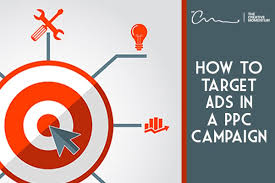
Mastering the Art of Targeted PPC Marketing: Reaching Your Ideal Audience with Precision
The Power of Targeted PPC Marketing
In the world of digital advertising, targeted Pay-Per-Click (PPC) marketing has emerged as a powerful tool for businesses looking to reach their ideal audience with precision and efficiency. By utilising targeted PPC campaigns, businesses can tailor their ads to specific demographics, interests, locations, and behaviours, ensuring that their message resonates with the right people at the right time.
Why Targeted PPC Marketing?
Targeted PPC marketing offers numerous advantages over traditional advertising methods. By focusing on reaching a specific audience segment, businesses can maximise their return on investment (ROI) by directing their ad spend towards those most likely to convert. This not only increases the efficiency of marketing budgets but also enhances the overall effectiveness of campaigns.
The Benefits of Targeted PPC Campaigns
- Precision Targeting: With targeted PPC marketing, businesses can define their audience based on factors such as age, gender, interests, location, and online behaviour. This precision targeting ensures that ads are shown to those most likely to be interested in the products or services being offered.
- Improved Relevance: By delivering relevant ads to specific audience segments, businesses can increase engagement and click-through rates. When ads are tailored to match the interests and needs of potential customers, they are more likely to generate interest and drive conversions.
- Cost-Efficiency: Targeted PPC campaigns are cost-effective as they focus on reaching a highly relevant audience. By eliminating wasted ad spend on irrelevant clicks, businesses can achieve a higher ROI and lower cost per acquisition.
- Data-Driven Insights: Targeted PPC marketing provides valuable data insights that can be used to refine future campaigns. By analysing performance metrics such as click-through rates, conversion rates, and customer demographics, businesses can continuously optimise their advertising strategies for better results.
Embracing Targeted PPC Marketing
As digital advertising continues to evolve, targeted PPC marketing remains a key strategy for businesses looking to stand out in a crowded online marketplace. By harnessing the power of precision targeting and data-driven insights, businesses can create impactful campaigns that drive results and propel growth.
Exploring PPC in Action: A Real-World Example
Identifying Key Objectives: The Targets of PPC Campaigns
4. Decoding the Basics: What PPC Means in
- What is targeted PPC?
- What is an example of a PPC?
- What are the targets of PPC?
- What is PPC in marketing?
What is targeted PPC?
Targeted PPC, or Pay-Per-Click, refers to a strategic online advertising approach that focuses on reaching a specific audience based on various criteria such as demographics, interests, location, and online behaviour. In targeted PPC marketing, businesses create tailored ad campaigns designed to resonate with their ideal customers, ensuring that their message reaches the right people at the right time. By honing in on specific audience segments, businesses can maximise the effectiveness of their advertising efforts, leading to higher engagement rates, increased conversions, and a more efficient allocation of marketing budgets.
What is an example of a PPC?
An example of a Pay-Per-Click (PPC) advertising campaign is Google Ads, which allows businesses to create ads that appear on Google’s search engine results pages and other Google properties. With Google Ads, advertisers bid on specific keywords relevant to their products or services. When users search for those keywords, the ads may appear at the top or bottom of the search results page. Advertisers only pay when a user clicks on their ad, making it a cost-effective and measurable way to drive traffic to their website and generate leads.
What are the targets of PPC?
In the realm of targeted PPC marketing, understanding the targets of PPC is crucial for crafting successful advertising campaigns. The primary targets of PPC encompass specific goals that businesses aim to achieve through their paid advertising efforts. These targets often include increasing website traffic, generating leads, boosting sales conversions, enhancing brand awareness, and improving return on investment (ROI). By aligning PPC strategies with these targets and utilising precise targeting techniques, businesses can effectively reach their desired audience and drive meaningful results that align with their overarching marketing objectives.
What is PPC in marketing?
Pay-Per-Click (PPC) in marketing refers to a digital advertising model where advertisers pay a fee each time their ad is clicked. It is a popular and effective way for businesses to drive traffic to their websites, increase brand visibility, and generate leads. With PPC campaigns, advertisers have control over their budget, target audience, and ad placements, allowing them to reach specific demographics and interests. By utilising PPC strategies, businesses can track the performance of their ads in real-time, measure the return on investment (ROI), and make data-driven decisions to optimise their marketing efforts for better results.

